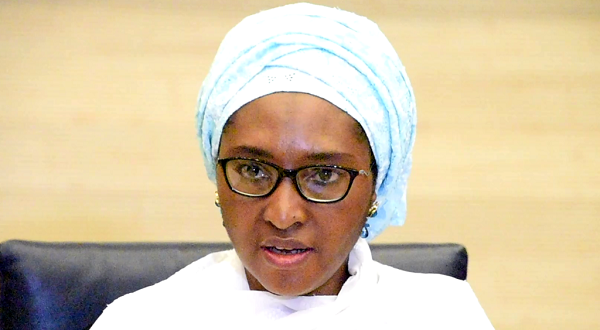Business
Nigerian economy performing better than projected –Finance Minister

The Minister of Finance, Budget and National Planning, Zainab Ahmed, has said the Nigerian economy fared better than analysts’ projections for the second quarter of 2020.
“We presented a memo to council in respect of the second quarter Gross Domestic Product (GDP) report, earlier released by the National Bureau of Statistics (NBS) on the 24th of August…
“The GDP report shows that the economy went into negative growth of -6.10% in the second quarter but that the aggregate performance for half year 2020 is -2.1%. This performance of -6.10% is a good performance in the sense that it is better than what we have projected second quarter performance to be at -7.2%,” Mrs Ahmed told reporters on Wednesday after the Federal Executive Council meeting in Abuja.
She stated that the performance also bettered the projection of the Bretton Woods Institutions as well as those of the advanced countries of the world.
Cost of living in Africa’s biggest economy has risen unhindered for 12 months in a row, pushing inflation rate to its 28-month peak at 13.22% in August, the statistics office said on Tuesday.
Read also: Nigerian economy needs about N10.1trn stimulus to recover from COVID-19 –NESG
“The US for example went into negative growth of 33% for the second quarter 2020 and 19% half year 2020. Similarly, the UK, Canada, Italy and several countries of the world all went into very significant negative growth.
“So, Nigeria’s economy has shown some level of resilience in this level of performance,” the minister said.
In its second quarter GDP report, the NBS noted that 30 of the 46 sectors (or 65%) of the economy posted negative growth but Ahmed said some sectors still maintained an upbeat trend.
“These sectors include agriculture as well as financial services and the ICT services. This is actually showing that even during the COVID era, there were still some sectors that stood firm and indeed were growing.
“The inflation was also reported to be moving up gradually, capital importation did not dry up despite the lockdown and the difficulties all countries experienced. But this is reflected by the significant decline in capital importation into the country,” she said.
Join the conversation
Support Ripples Nigeria, hold up solutions journalism
Balanced, fearless journalism driven by data comes at huge financial costs.
As a media platform, we hold leadership accountable and will not trade the right to press freedom and free speech for a piece of cake.
If you like what we do, and are ready to uphold solutions journalism, kindly donate to the Ripples Nigeria cause.
Your support would help to ensure that citizens and institutions continue to have free access to credible and reliable information for societal development.
























